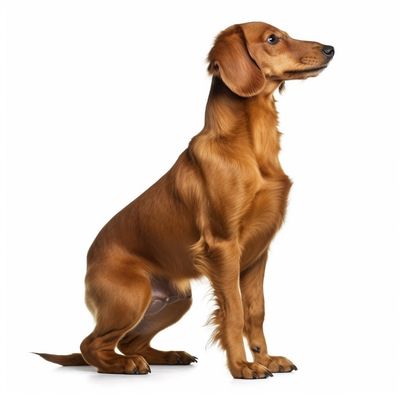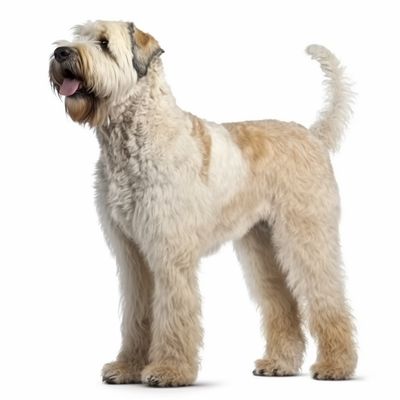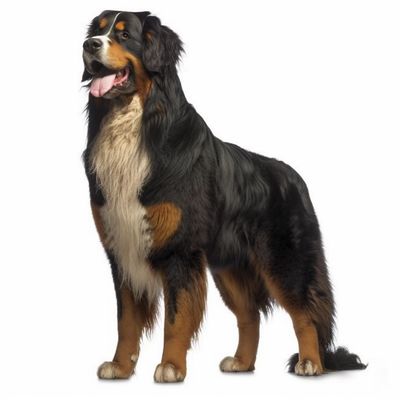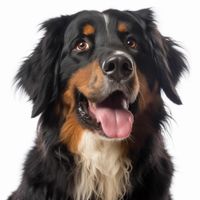Dachshund - vs - Soft-Coated Wheaten Terrier - vs - Bernese Mountain Dog

Dachshunds are small dogs, weighing 16-32 lbs for the standard size and 8-11 lbs for the miniature size, with a height of 8-9 inches.
Dachshunds are active and lively but don't require an excessive amount of exercise.
Dachshunds enjoy daily walks and playtime to maintain their physical and mental health.
Dachshunds can be stubborn, but with patience and consistency, they can learn commands and tricks.
Dachshunds are intelligent dogs but can be independent thinkers, which may make training challenging at times.
Dachshunds are adaptable and can thrive in various living situations, including apartments and houses.
Dachshunds can be good with kids, especially when socialized from a young age.
Dachshunds can get along well with other pets when properly socialized.
Dachshunds can tolerate mild cold weather, but they should be protected from extreme cold due to their short legs and low body clearance.
Dachshunds can handle some heat but should be provided with shade, water, and limited time outdoors in high temperatures.
Dachshunds have low shedding, depending on their coat type (smooth, longhaired, or wirehaired).
Grooming needs for Dachshunds depend on their coat type but are generally low maintenance.
Dachshunds tend to bark more frequently and may require consistent training to manage their barking.
Dachshunds may have some health issues, requiring regular veterinary checkups and preventative care.

Soft Coated Wheaten Terriers are medium-sized dogs, weighing 30-40 lbs, with a height of 17-19 inches.
Soft Coated Wheaten Terriers have a medium energy level, enjoying a good balance of playtime and relaxation.
Soft Coated Wheaten Terriers need regular exercise, including daily walks and playtime in a securely fenced area.
Soft Coated Wheaten Terriers are intelligent and trainable, but they can be independent thinkers. Consistent, positive reinforcement is key.
Soft Coated Wheaten Terriers are highly intelligent dogs and can excel in various dog sports and activities.
Soft Coated Wheaten Terriers can adapt well to different living situations, including apartments and larger homes, as long as their exercise needs are met.
Soft Coated Wheaten Terriers can be good with children, being playful and affectionate. However, supervision and proper handling are important.
Soft Coated Wheaten Terriers can get along well with other pets, especially when raised together.
Soft Coated Wheaten Terriers can tolerate colder temperatures, thanks to their thick, insulating coats.
Soft Coated Wheaten Terriers can tolerate hot climates but need to be monitored for signs of overheating during exercise.
Soft Coated Wheaten Terriers have a low-shedding coat, making grooming relatively easy.
Soft Coated Wheaten Terriers require regular grooming, including brushing and trimming to keep their coats clean and healthy.
Soft-Coated Wheaten Terriers are generally healthy, but regular veterinary checkups and preventative care are still necessary.

Bernese Mountain Dogs are large and sturdy, weighing 70-115 lbs and standing 23-28 inches tall.
Bernese Mountain Dogs have a moderate energy level, requiring regular exercise and playtime.
Daily exercise, like walks or playtime, keeps Bernese Mountain Dogs happy and helps prevent boredom.
Bernese Mountain Dogs are intelligent and eager to please, but can be stubborn at times.
Bernese Mountain Dogs are smart and enjoy learning new commands and problem-solving activities.
Bernese Mountain Dogs prefer cooler climates and need space, making them better suited for larger homes.
Gentle and patient, Bernese Mountain Dogs are wonderful playmates and companions for children.
Friendly and sociable, Bernese Mountain Dogs typically get along well with other dogs and pets.
Bernese Mountain Dogs are well-suited for cold weather due to their thick, double-layered coat.
Bernese Mountain Dogs struggle in hot climates and require extra care, like shade, water, and limited exercise.
Bernese Mountain Dogs shed seasonally and require regular brushing to manage their coat.
Regular brushing is necessary to maintain the Bernese Mountain Dog's thick coat and prevent matting.
Bernese Mountain Dogs bark occasionally, usually only when necessary or provoked.
Bernese Mountain Dogs have breed-specific health issues that require additional care and attention, such as regular veterinary checkups, preventative care, and potential medication or treatments.



